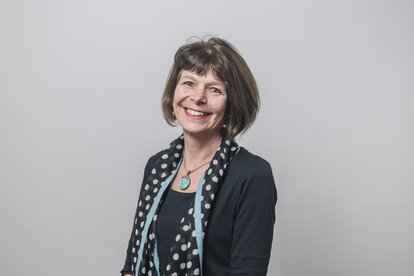Two of the participants at our June workshop in Bolivia were from Guatemala: Angélica Alarcon Alba, our Project Manager for SERVIME and Gender and Social Equity Focal Person, and Claudia Santizo, Deputy Country Programme Director. In presenting an activity of the project SERVIME (which like the last one mentioned in this blog is one designed and funded by Helvetas rather than on behalf of another donor), they chose to illustrate it through a short role play, followed by a video. Both focused on SERVIME’s support for training indigenous women in remote areas of Western Guatemala to become an active participants in Community Development Councils (acronym COCODE in Spanish).
The role play – which took the form of a local radio interview of a woman who had received training – nicely illustrated some of the challenges faced by women brave enough to express interest in the training. Gender roles are very stark in these rural areas, meaning that most women have had little formal education, struggle to express themselves in Spanish, married early, have a heavy domestic workload, and have husbands who expect wives to stay in the home – not to get involved outside in the community. Genderbased violence is common.
The training course is conducted by the partner NGO AMUTED, Asociacion Mujer Tejedora del Desarrollo, which specialises in promoting women’s leadership. It covers aspects such as self-esteem, gender-based violence, the relevant laws, especially those related to the functioning of the COCODE, and how to conduct community facilitation. Split into six modules, each of two days, the women commit to attending one module per month. They also undergo a practical period – first amongst a group of local women, and then as a second step in COCODE, interacting with the (male) councillors. Successful trainees receive a diploma, and thus become trainers themselves.
So far, three full courses have been held, resulting in the award of diplomas to 42 individuals (40 women and – in the most recent training – two men). A video shows footage of some of the women practising how to present a proposal in public, and short interviews in which they describe their feelings. Actually words are not really needed – it is clear from their body language that they felt confident and proud. According to Angelica, in the various COCODE in which women have been trained, there is a clear increase in the participation of women in meetings and decision-making. Some women have been elected to positions of responsibility – including as municipal councillors. Women’s voices in decision-making mean that different sorts of projects are funded by the council, either ones proposed by women, or taking into account women’s needs – particularly, for example, related to water supply and use, and health.
Despite some very positive examples, there are also clear limitations. Angelica noted that drop-out rates during the course of the training are quite high – even two days per month is often too much for women to be away from their homes. Not all of those who graduate are able to use their skills in the community; of the 42 so far, only 25 are active trainers. The greatest problem, apparently, is jealous husbands who perceive the new-found confidence and knowledge of their wives as a threat. Thus the experiment of training two young men in the latest course has been closely followed, and judged a success; the young men have become strong proponents of women’s rights. This has given impetus to ideas for future training around concepts of masculinity, changing gender roles, and an equitable voice for women and men in voting.


